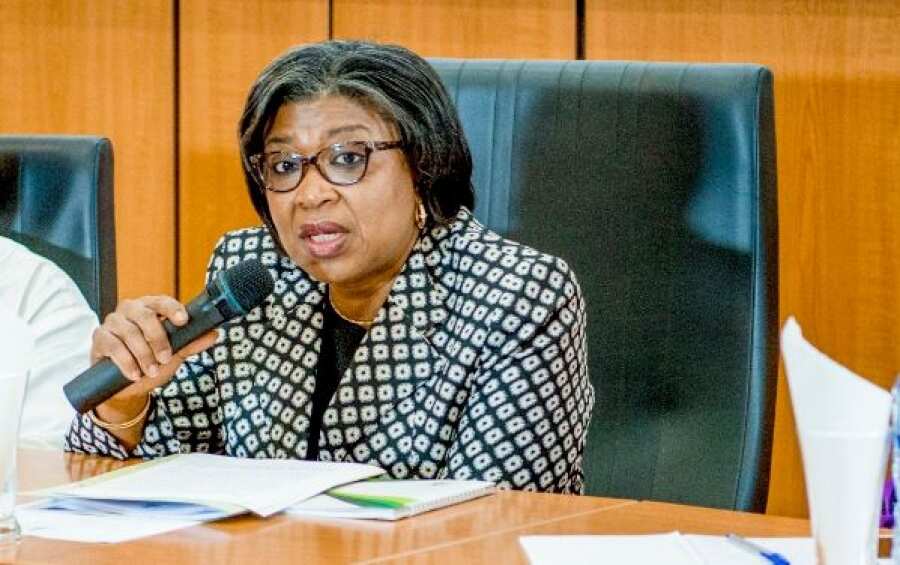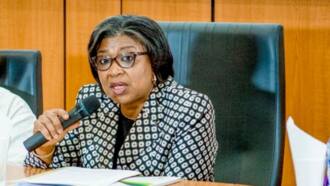DMO Explains How Federal Govt Borrowing From World Bank, IMF, China, Others Have Created Jobs, Boost Economy
- The Nigerian government has defended that its decision to borrow from different parts of the world and institutions has helped the economy
- Some of the creditors of Nigeria include World Bank, International Monetary Fund, China, Japan among several others
- The latest Data from DMO shows that Nigeria’s total public debt stock had increased to N39.556 trillion in 2021
PAY ATTENTION: Click “See First” under the “Following” tab to see Legit.ng News on your Facebook News Feed!
Various loans secured by the Federal government borrowing have been described by the Debt Management Office (DMO) as a blessing to the Nigerian economy.
According to DMO, the federal government used loans to bring the economy out of the 2017 and 2021 recessions.
Patience Oniha, the agency's director-general, stated this on Thursday, 31 March 2022, during a keynote talk at the fourth national budget roundtable and panel debate at Covenant University in Ogun state.

Source: UGC
Oniha stated during the event, titled National Budgeting for Economic Recovery and Sustainable Development in Nigeria, that government borrowing may help other sectors of the economy.
PAY ATTENTION: Join Legit.ng Telegram channel! Never miss important updates!
She said:
“The Nigerian government has successfully utilised borrowing as a tool for economic recovery, to bring the economy out of cycles of recessions, first in 2017 and second in 2021.
“Government borrowing can also support other sectors of the economy that attract foreign investors and have multiplier effects on the country.”
The benefits
Oniha also said that most of the critical infrastructure built by the federal government was funded from internal and external borrowings.
She added that government borrowing was not necessarily bad if used to finance important developmental projects and programmes.
The director-general listed some of the infrastructure built by the federal government as the Lagos-Ibadan expressway, Second Niger Bridge, train station in Iddo and the Lagos and Enugu airports.
Speaking further, she said the nation’s current debt profile to gross domestic product (GDP) ratio was 22 per cent, adding that the maximum debt ratio to GDP of any country should be 40 percent.
“The nation’s debt profile is fast growing as the country has a huge infrastructure deficit,” she said
“However, the government is working tirelessly to diversify revenue sources to reduce pressure on crude oil, which is prone to volatility.”
Oniha noted that spending on infrastructure by the federal government was meant to create job opportunities for youths.
From Obasanjo to Buhari: List of loans borrowed under Nigeria's 4 presidents
Legit.ng had earlier reported that President Muhammadu Buhari stirred heated reactions from Nigerians when he tabled a fresh request for the approval of another set of loans before the Senate.
The Nigerian leader sought approval from the National Assembly to borrow $4,054,476,863.00, €710 million, and a grant of $125 million.
Many Nigerians are against the borrowing spree of the current administration as it seeks to provide more infrastructure amid dwindling revenue.
Source: Legit.ng



